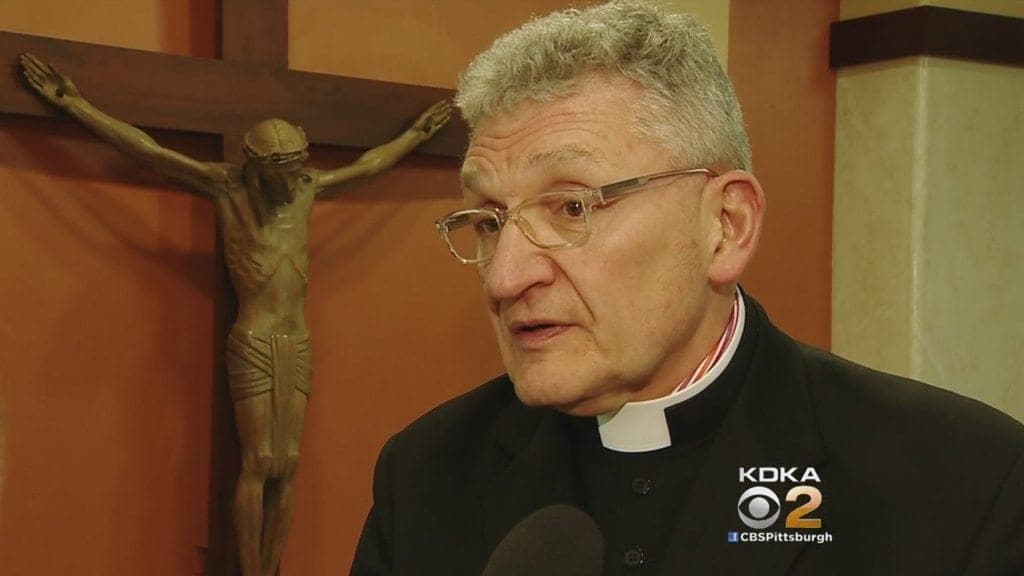PITTSBURGH — Pittsburgh’s Catholic diocese has announced plans to reduce the current 188 parishes over six counties to just 57 over the next few years.
Bishop David Zubik said Saturday that each of the 57 parish groupings will have two to five years to come up with a plan to consolidate the churches within them. He told reporters at St. Paul Seminary in East Carnegie that each parish grouping will be served by a clergy team.
The diocese said a year ago that the many parishes and church buildings could no longer be justified given current finances and clergy shortages.
In a statement released Saturday, Zubik said, “No matter how the Church is structured, it is the responsibility of all the faithful – bishops and priests included – to make faith, hope and love remain alive in the world around us.”
“Our churches will continue to be places where local Catholics gather to be nurtured and nourished by the God who loves us. Yet, ‘On Mission!’ gives us a new context and new opportunities to make ever more alive a faith that abides both within and outside of our church walls.”
No church closings are part of the initiative. The groupings are expected to merge into new parishes between 2020 and 2023.
Zubik also announced the maximum number of Masses per parish grouping, and priest and deacon assignments in parishes, institutions, special ministries and diocesan administration.
All changes are effective Monday, October 15, 2018.
“For the past three years, we have labored to discover how best to position our parishes for the future. We have been called to respond to the reality that populations in our region have shifted, that many Catholics have drifted away from Mass, and that we will have fewer priests. These realities are opportunities for us to think about and create new ways to share and mobilize our resources to draw people deeper into the faith and serve those in need,” Zubik said.
After consultation with their lay leaders and parishioners, clergy in each grouping will recommend to Zubik which church buildings will best serve the new parish. Zubik will make the final decisions.
A priest who serves as administrator of a grouping will lead a clergy team of priests and deacons. Teams may include priests who serve as parochial vicars, or assistants. Some groupings are assigned parish chaplains, who, along with institutional chaplains, will minister in hospitals, nursing homes, colleges, high schools and correctional institutions.
The maximum number of weekend Masses per parish grouping is based on the number of priests assigned to serve a parish. Canon law limits the number of weekend Masses that each priest may celebrate. Priests who live at a parish, but whose duties are elsewhere, are not included in the maximum number of weekend Masses.
Over the coming months, incoming administrators will collaborate with current pastors and administrators to create interim Mass schedules, which will be announced in August and take effect October 15. New schedules for confession and religious education also will be developed in many groupings.
“I truly believe that change can bring new life and joy. I realize that such transformation is rarely easy, especially in the heartfelt matters of faith and parish life,” Zubik said.
“I know that this change will require us – the faithful, the clergy, and myself – to let go of some things that are precious and familiar. I also am convinced that our clergy and faithful have what it takes to form deep and lasting relationships within their groupings and to create welcoming communities,” he said.
Crux staff contributed to this report.














